 Back to selection
Back to selection
25 New Faces
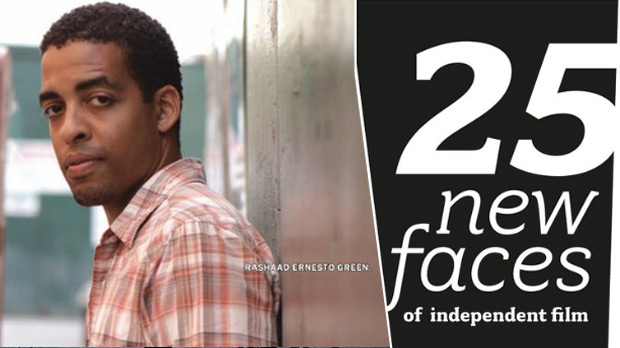
Welcome to the 2010 edition of Filmmaker‘s annual survey of new independent film talent.
Victoria Mahoney

Writer-director Victoria Mahoney began her artistic career as an actress in theater and then film. “Shelly Winters was my teacher,” Mahoney says. “If you touched your hair too many times in her class, she’d come over and cut off your bangs. She taught me the gift of stillness.”
After working off-off Broadway, Mahoney went to L.A., did a number of pilots, a few European films, and a season of Seinfeld (she played Gladys Mayo, owner of the clothing store Putumayo). But then there were all those “ridiculous films I did to sustain myself. And that’s when I began to feel [artistically] ungratified. So, I slipped into writing. I went to Cubby — that’s what we called Hubert Selby, Jr., who taught the masters program at USC. He gave me a skill set for writing instead of my [previous] fantasy of being a writer.”
Mahoney says the seeds of Yelling to the Sky, her powerful, emotionally nuanced debut feature about a New York City teenager growing up in a mixed-race family, go back 10 years. “I had seen Chekov’s Three Sisters many times, and I loved and identified with it. I thought I’d do a contemporary version with mixed-race girls. Cubby helped me a lot with the early drafts, and the script went from something I wanted to do to something I needed to do.” Mahoney further developed the script at the Sundance Labs and then focused on getting it made. “I removed all distractions, from the script and also my life. I got over a fear of financial insecurity. I said to myself, ‘I will live on people’s couches.’ I was homeless through principal photography and most of postproduction. I don’t recommend it, but it shouldn’t stop you either.”
Yelling at the Sky, which was produced by Billy Mulligan and shot in 35mm by Frozen River’s Reed Morano, stars Zoë Kravitz, Gabourney Sidibe and Tim Blake Nelson. It is currently in post and just completed the IFP’s Narrative Lab. The film’s tale of a tough adolescence has shocking moments of violence but also of tenderness. It conveys the humanity of all its characters, even the ones we begin the movie hating. When asked how much she based the script on her own life, Mahoney, who grew up in Regis Park and Bay Shore, Brooklyn, replies, “I relied on autobiography when it worked and departed from it when it didn’t. When the story became too exclusive, I would open it up. The conflict that occurred in my own life [with my father] wasn’t uncommon, but what was unique is that I made great peace with him in my twenties. He was no longer a person who neglected or harmed me — he was just a person on this planet trying to find his way. I was able to see him as a person.” Indeed, Mahoney, who has drawn fine performances from her actors, has a sophisticated and empathetic understanding of the characters they play. “It was my challenge to keep all my characters multifaceted,” she says. “As a storyteller, you have a responsibility to go past the obvious.” — Scott Macaulay
Contact: victoria dot Mahoney at gmail dot com
Alex Jablonski & Michael Totten
“This project has been like what musicians call ‘woodshedding,’” says Alex Jablonski about his collaborative venture with Michael Totten, Sparrow Songs. “We are finding our voice, trying out different styles, and learning so much.” Adds Totten, “In the past I’ve let this idea of ‘I don’t have the right money or equipment or subject matter’ prevent me from moving forward. Sparrow Songs has taught me to get rid of the idea of perfection because it doesn’t exist.”
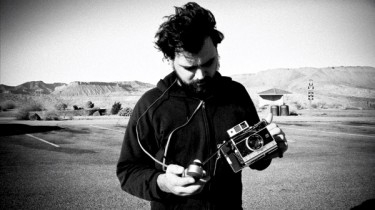
What is Sparrow Songs? Simply, it’s a year-long filmmaking project in which director-editor Jablonski and d.p. Totten make and upload one short doc a month. Averaging about eight minutes, the films are beautifully shot (on the Canon 5D Mark 2) poetic essays capturing specific people and the communities that form around them. In their brief span, the films subtly move from the specific to the universal, arriving at small-scale epiphanies about the ways we all choose to lead our lives. The films include Porn Star Karaoke, about the crowd that gathers weekly at an L.A. club for an evening of karaoke with adult movie stars. In The Donut Shop, the filmmakers themselves wonder why more people won’t talk to them during a night spent at a 24-hour donut joint. In L’Arche, Jablonski and Totten visit a warm, non-institutional home for the developmentally disabled; they focus not only on the residents but also on the caregivers, who include a young woman who has just left a monastery. The Truth looks at the community of 9/11 “truthers.” Says Jablonski, “In terms of a larger thematic, each film takes a longer look at people I might normally dismiss, and they all end up having really interesting stories.” There’s also an accompanying blog, where the filmmakers expose their production process and ruminate on the direction of the overall project.
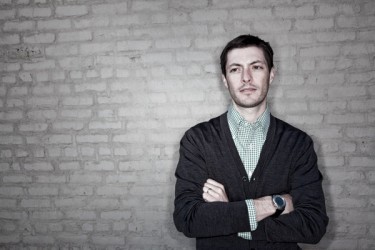
The knowledge that these are not just disparate short films but rather installments in a time-based project gives Sparrow Songs a quiet gravity. The project began when Jablonski, who graduated from UCLA Film School in 2009, heard about a friend, musician John Wood, who was releasing an album a month. “I thought that was such a cool discipline,” he says. Jablonski’s narrative short Blue Boy had been playing festivals, including Tribeca, and he was doing the rounds of meetings. “I realized that [industry projects] take a long time,” he says. “I wanted to do something where I wouldn’t have to ask permission to either make it or show it.”
Remembers Totten, whose d.p. credits include the David LaChappelle doc, Rize, and additional cinematography work on The Tillman Story: “Alex and I met on a music video. About six weeks later he pitched me Sparrow Songs. I said I’d love to get involved, but I also thought it might just fizzle away.” Indeed, the commitment to the project can be, says Jablonski, “really draining. I’ve been working as an editor on Stomp the Yard 2 for Sony. I’m there from 9:00 a.m. to 7:00 p.m., and then I’ll come home and edit Sparrow Songs from 8:00 p.m. to 2:00 a.m. Every single month, there has been a moment where I’ve thought, ‘This one is going to suck.’ But the great thing about the schedule is you don’t have the luxury to get in your own way. You have to make intuitive decisions.” Adds Totten, “Sometimes it will be the tail end of a job, and the last thing you want to do is shoot another day. But you do it because you’ve committed to it, and afterwards you feel a great sense of accomplishment. It’s therapeutic.”
Needless to say, “monetization” is indirect. Says Jablonski, “At least two times a week I get an e-mail from a random stranger saying, ‘Thank you for making these films. They give me a lot.’ But the big-picture benefit is that Michael and I have developed a great friendship, and that friendship is what’s allowed the project to continue.”
Sparrow Songs is scheduled to conclude October 2010. As for what’s next, Jablonski will only say, “We’re going to make a feature documentary together as Sparrow Songs. We’re looking for a producer, and we hope to be shooting this fall.” — S.M.
Contact: thesparrowsongs.com; alex at fgfohio dot com; michaeltotten at mac dot com
Rashaad Ernesto Green
Possessor of a sneaky sort of charm that hides his utter tenaciousness, Rashaad Ernesto Green, a promising directorial talent from the Bronx, makes movies that get under your skin with what, upon reflection, seems like relative ease. His pictures, a trio of shorts and a forthcoming feature, openly seek to reveal the humanity within the taboos and faux pas of people of color. Green is clearly out to surprise us with his unusual depictions of equally unusual milieus, and he isn’t much for asking permission. “I was in a black box theater in St. Louis, reading The Seven Habits of Highly Effective People,” he told me recently during preproduction for his forthcoming feature debut Gun Hill Road. “It said to view your life from the prospective of your funeral. I let it inspire me. When I sat there in the casket, looking at what others would say about me, I felt them speaking about someone who did not wait for opportunities to come my way, who took the bull by the horns and created my own path.”
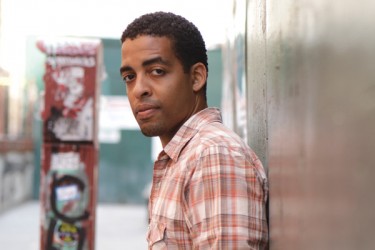
Whether it’s his HBO Short Film Award winning Premature, a classically built narrative short about a Bronx teenager who, having found no support for her pregnancy from either her disaffected family and brutal community, resorts to drastic, near-tragic measures to free herself of responsibility, or his 2009 Sundance approved four-minute short Choices, a one-shot formalist wonder that stays with you well after it’s over, you get a sense with Green that he is someone who very deeply wants to say vital things through this often wanton medium. The stark impression Choices leaves you with of one young man’s ambiguous sexual encounter with his girlfriend is the product of willful attention to the most nuanced details of acting. Little surprise then that one finds that Green was a working actor for years before turning his attention to film.
The NYU Film grad counts Spike Lee, the walking film-directing brand and dean of Black Cinema himself, as a mentor, influence and friend, but he also name checks Paul Greengrass, Clint Eastwood and 2003 25 New Face Seith Mann as influences. “I respect those who have a voice, who speak up, who have something to say,” he said. His upcoming film, produced by Night Catches Us producer Ron Simons, is about “a Puerto Rican family in the Bronx whose father returns home from prison after three years to discover that his teenage son is gay/transgender, and the drama that ensues.” Look for it on the festival circuit next year. — Brandon Harris
Contact: mialmafilms.com; rashaad at mialmafilms dot com
Sara Colangelo
Sara Colangelo’s Little Accidents is one of the more arresting shorts on the festival circuit at the moment, both immediate and restrained in its tale of a woman working in a Massachusetts soda drink factory who fears that she’s become pregnant. She recruits her mentally disabled ex-boyfriend to shoplift a pregnancy test for her and bonds again with him as she struggles with what to do. “I was interested in the juxtaposition of two people, one of whom is recently disabled and trying to reintegrate himself into society and who is the stable one, and the other a woman who may be pregnant and who is spinning out of control,” Colangelo says. “And I was interested in the factory setting, which is almost a metaphor for motherhood. Through the course of the short, you slowly realize that these people have a past, and that they dated once. I’m always interested in withholding information from the audience. It becomes more interesting for them that way; it gets their wheels turning.”
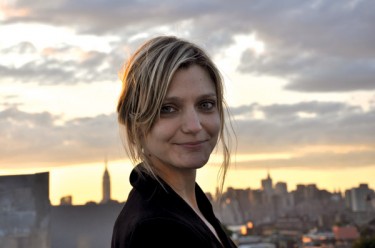
For the New York City-based recent graduate of NYU’s Tisch School of the Arts, Little Accidents has traveled to numerous festivals, including Sundance and the Seattle International Film Festival where it won the Grand Jury Prize for Narrative Short.
Colangelo is midway through another project, a documentary. “I heard a story on NPR one morning about this band, BILL,” Colangelo says. “The older brother is the manager, and he put his younger brother, Bill, who has Down syndrome, in as lead singer. My younger brother has Down syndrome, so their process was fascinating to me. I gave them a call and they let me spend a lot of the summer of ’08 with them, sitting in on recording sessions, following them around when they perform. I think disability is talked about a lot when people are younger and going through special needs schools, but when they’re older it feels like they’re forgotten about. They fall off the grid.”
Continuing, Colangelo says, “We have so much material. One of the film’s arcs deals with John, the older brother. He’s had musical failures, going from band to band and not having them work out. Suddenly he puts his younger brother in a band and it starts getting all of this attention. But the film is also about mortality. Bill has had two heart surgeries, and John, who wasn’t that close to him early on, worries he doesn’t have much time left with him.”
Finally, Colangelo is working on a feature script “loosely based” on Little Accidents. “It takes the same character and the same type of small American town and weaves in another storyline,” she says. “It’s similar in that it looks at trauma and its trickle-down effects.” — S.M.
Contact: Craig Kestel at WME: (310) 285-9000
Robert Machoian & Rodrigo Ojeda-Beck
When they met as undergrads at CSU Monterey Bay, Robert Machoian and Rodrigo Ojeda-Beck had different styles but found a third when working together.
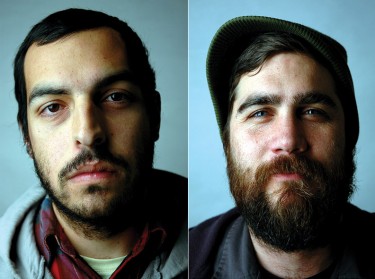
“A lot of my early work was pushing what people can process with quick cuts and juxtaposition of image,” Ojeda-Beck says. And “I was really exploring duration,” Machoian adds — “what can be done in a single shot and really raw, raw sound, mainly straight off the mic.”
Their short films together display a handle on classic arthouse film style. Visuals are the key, along with luscious colorful imagery and solitary characters in simple situations, with editing that tells a story that’s deep without much dialogue.
Their goal was to make as many films as they could over the course of a semester, resulting in 14 shorts. Ella and the Astronaut played festivals all over the world, and Charlie and the Rabbit premiered at Sundance 2010. The collaboration is just that: After conversations about an idea, they talk each scene out on location, switching up who is filming and who is directing based on a feeling of the moment. Both share editing duties.
Since graduating, they have made two seasons of their Web series American Nobodies, short films profiling people in small towns. This may result from growing up in small towns — Machoian in King City, Calif. (“6,000 when I was there”), and Ojeda-Beck in Davis, Calif., where his parents relocated to from Peru. For Ojeda-Beck, “growing up in a small town requires you to look, to see.”
“The documentaries we do are secondary to the experience we get having time with the individual people,” Machoian explains. “We’ve learned that Americans are amazingly compassionate people who are looking for such a small amount of joy in life, who aren’t interested in imperialism, greed or whatever else the media wants to label them as. What they are interested in is putting food on the table, a roof over their head and having something in their life that they love to do.” — Mike Plante
Contact: robert at 433pictures dot com; rodrigo at 433pictures dot com
